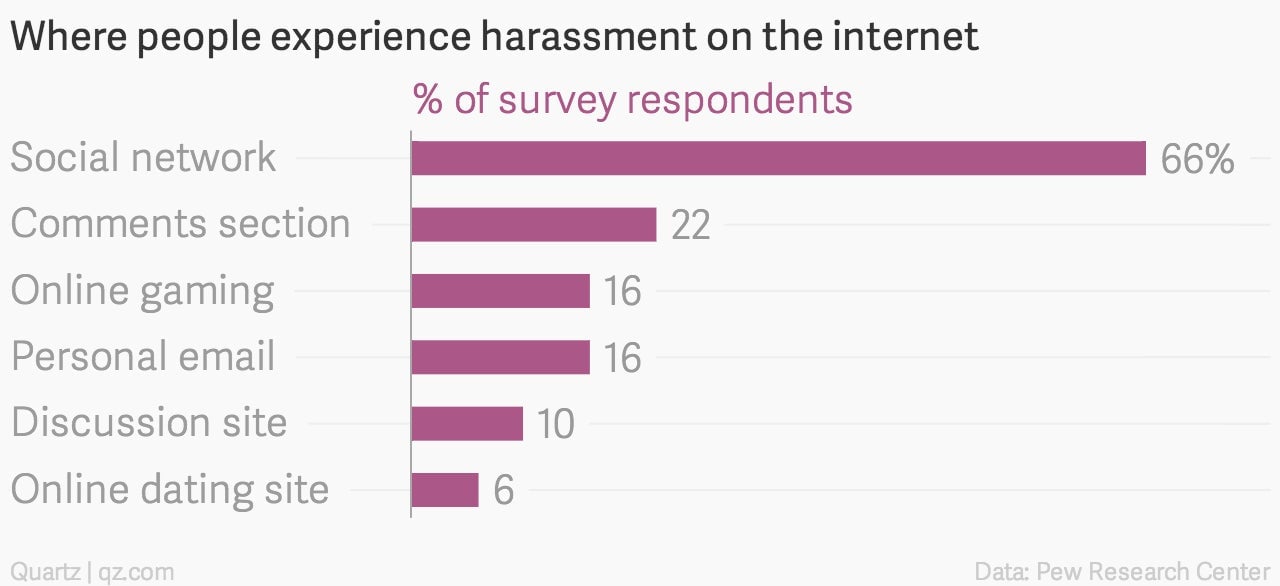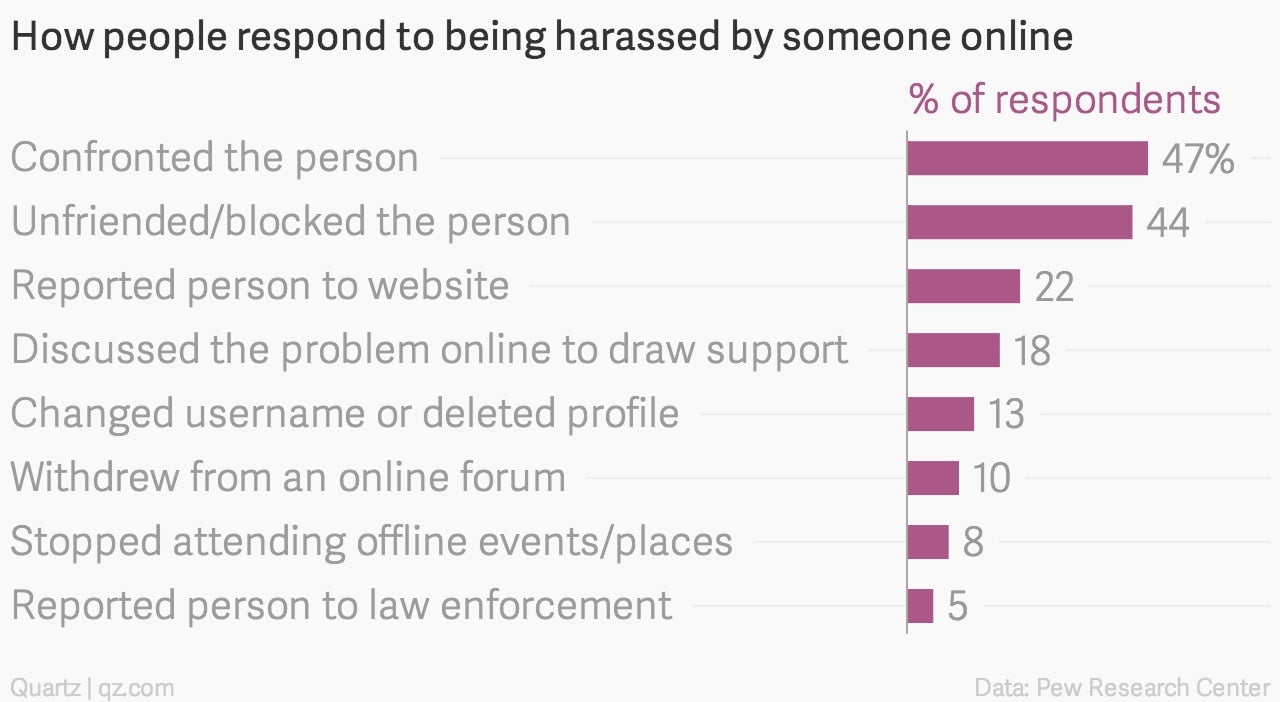Harassment on the internet is even more common than you think—especially for women
The notion that the internet is a mean, scary place now comes with some numbers to back it up.


The notion that the internet is a mean, scary place now comes with some numbers to back it up.
A Pew survey released today revealed that nearly half of internet users said they’ve been harassed online, while three-quarters have witnessed it occur to others. Essentially, everyone on the internet has encountered harassment one way or the other.
There are different degrees of harassment. Of 40% of internet users who said they’ve been harassed, 55% said they’ve been called names or had someone try to embarrass them.
But there are other, more severe forms of harassment, and young women are experiencing them at a seriously disproportionate rate:

Among men and women aged 18-29, 65% said they’ve been harassed online, while 92% said they’ve witnessed it happen to someone else.
Social networks accounted for two-thirds of all environments where online harassment occurs. A distant second: the comment section of a website.

Note: Pew puts Reddit in the discussion site category. Many people, including the writer of this piece, consider Reddit to be a social networking site. If Pew were to agree, the social media category would likely be even higher than 66%.
Social media, where internet users spend the majority of their time, has provided fertile ground for harassment to proliferate. And it is especially bad for women.
We all have different ways of responding to harassment—depending, naturally, on the severity of the offense. Here’s how the Pew survey respondents said they reacted to being harassed online:

That only 5% say they reported their tormentor to the authorities isn’t too surprising—people being harassed online usually have very little legal ground with which to prosecute.